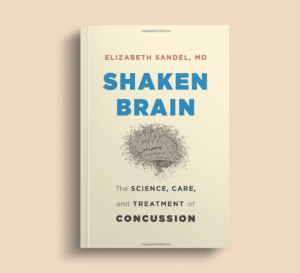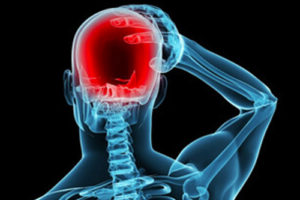Common Misconceptions about Concussion

1
A concussion is not a brain injury.
False. A concussion is a type of brain injury, sometimes referred to as a mild traumatic brain injury (mTBI), although symptoms such as headaches or dizziness can be severe. In the past, concussions were not taken seriously, and were referred to as “having my bell rung” or “being dinged.” In the last few decades, these injuries have been recognized as very important for both their short- and long-term effects.
2
You must lose consciousness to sustain a concussion.
False. Only about 1 in 10 concussions involve a loss of consciousness. However, for a concussion to have occurred, there must be evidence of a neurological injury such as a balance problem, slurred speech, visual disturbance, or an impairment in consciousness (confusion, disorientation, or memory problems), even if symptoms resolve quickly.
3
After symptoms resolve, an athlete can return to the same game or practice.
False. An athlete must be removed from and not return to play if there is any evidence they have sustained a concussion. This is because of the risk of a more severe brain injury, including second impact syndrome which can be catastrophic. The athlete must be cleared by a licensed healthcare provider before returning to play any sport or activity with a concussion risk.
4
If a head CT scan is normal after a concussion, a brain injury has not occurred.
False: A physician makes a diagnosis of a concussion based on a thorough physical and cognitive examination, although an imaging study may be ordered, too. CT scans do not always show evidence that a brain injury has occurred, especially a mild brain injury. Brain MRI scans have more sensitivity, but even an MRI may not show any evidence of a brain injury.
5
Sports injuries are the main cause of concussions.
False. According to the US Centers for Disease Control (CDC), falls are the main cause of concussions, especially in the very young and the elderly. Sports injuries are not the most common cause of concussions even in young people. One of the most common causes of concussions is bicycle accidents.
6
A blow to the head is required for a concussion.
False. A concussion can be caused by an impact to the head, face, neck, or any other part of the body that results in the brain moving rapidly back and forth within the skull. For example, this could be from a fall down the stairs or when two athletes collide on the soccer field.
7
All concussions are the same in terms of severity and outcome.
False. There are no precise measures of concussion severity or predictors of how long recovery will take. Loss of consciousness, vomiting, seizures, unequal pupils, neck pain or weakness, confusion or agitation are signs of a more severe injury, and transport to an emergency room is urgent. Some symptoms may be evident at the time of injury, but others may not appear until days later, and early medical evaluation and treatment is very important. Microscopic changes can continue in the brain over time, which may explain how some new symptoms emerge and others worsen during the weeks and months after injury. Up to 50% of people still have concussion symptoms after 3 months.

8
Rest is the best treatment for a concussion.
False. After evaluation by a licensed healthcare provider, a regular sleep-wake pattern is important for brain healing. After a day or two of light activity such as walking or riding a stationary bicycle, a gradual return to more activity and aerobic exercise is important to speed recovery. There are many symptomatic treatments for people who have had concussions. Medications, and also physical, vestibular, vision and cognitive therapies, can be helpful. Screens and digital media may make symptoms worse and can be avoided, but there is no evidence that they are harmful.
9
All over-the-counter pain medications must be avoided after a concussion.
False. Medications that increase the risk of bleeding such as ibuprofen (Advil) and naproxen (Aleve) should be avoided within the first day after a concussion, but acetaminophen (Tylenol) is safe to take after a concussion. Opioid medications should be avoided. The type or cause of a headache or neck pain must be determined by a physician prior to starting prescription medications or other treatments. While some headaches may be the result of injury to the brain itself, many others are the result of injury to bones and soft tissues, especially of the neck.
10
The best helmet or mouth guard can prevent a concussion.
False. Protective equipment will not prevent a concussion. Mouth guards and helmets play an important role in preventing injuries to the mouth and head (skull), and also reduce more severe brain injuries in certain sports and recreational activities (cycling, skiing, etc.) Virginia Tech has rating systems for helmets, and proper fit is also very important.
You Might Also Like
Can We Adequately Treat Concussion?
Finding a physician specializing in brain injury medicine can be difficult because the field is relatively new, but there are resources to help.
Comprehensive Care of Concussions
Dr. Richard Delmonico, a neuropsychologist, outlines the approaches to triage and treatment in a concussion clinic in the Northern California Kaiser Permanente health system. He also discusses the uses of neuropsychological testing to help with diagnosis and management of people with concussions and other brain injuries.
Concussions or “Mild” Brain Injuries are Still Misunderstood
Even as the incidence of concussions is on the rise in the U.S. and in countries around the world, this injury from a blow to the head remains a largely misunderstood condition. Concussions happen to people from all walks of life—young athletes, the elderly, people injured in motor vehicle accidents,…
Keep up to date
Get updates on the latest in concussion, brain health, and science-related tools from Dr. Elizabeth Sandel, M.D.
By clicking SIGN UP, you agree to receive emails from Dr. Sandel and agree to our terms of use and privacy policy.
Get the book!



